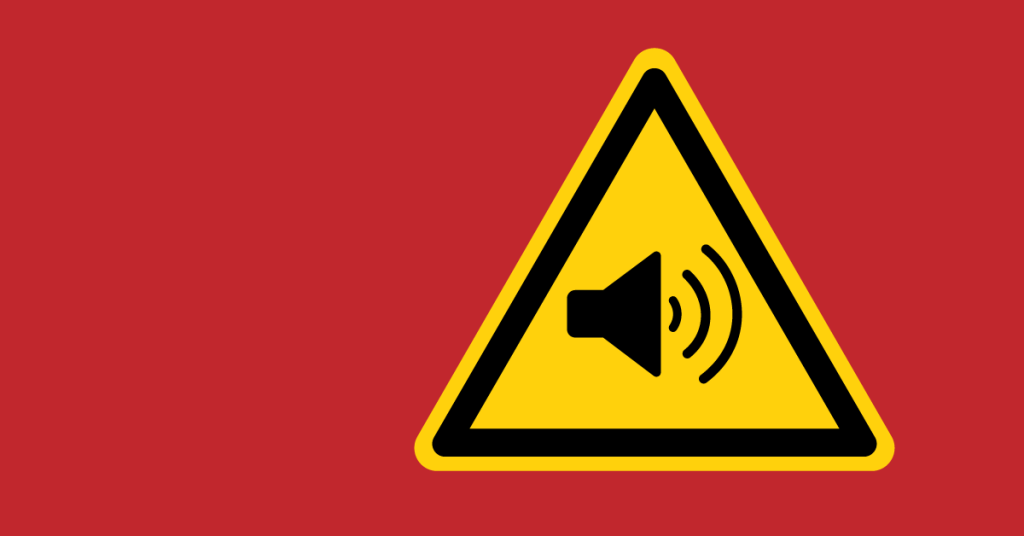At Minnesota ENT, we understand how vital your hearing is to your quality of life, whether you’re watching the evening news, at a ball game, or out for a walk. While some hearing loss is a natural part of aging or due to unavoidable circumstances, many individuals unknowingly contribute to their own hearing decline through everyday habits. The good news is that awareness and proactive steps can make a big difference. Let’s explore some common causes of preventable hearing loss and what you can do to protect your ears.
Headphones and earbuds
Headphones and earbuds have become essential in our daily lives, from workouts at the gym to commutes. However, improper use is a significant and preventable cause of long-term hearing damage. Our audiologists at Minnesota ENT often see patients whose hearing has been affected by years of unsafe listening habits.
- Volume control issues: If those around you can hear your music, or if your ears feel tired or ring after listening, the volume is likely too high. The World Health Organization (WHO) recommends limiting personal audio device use to under 80 decibels for no more than 40 hours per week to minimize the risk of noise-induced hearing loss. Consider downloading a decibel meter app like Decibel X, (App Store and Google Play) on your smartphone to get a better understanding of safe listening levels.
Fit matters: Poorly fitting earbuds allow sound to leak, tempting you to increase the volume. Ensure a snug fit for optimal sound quality and reduced risk. If you’re unsure about the right type or fit for your needs, our audiologists can offer guidance.
- Fighting background noise: Turning up the volume to overcome noisy environments can be harmful. Investing in noise-canceling headphones is a smart way to enjoy audio at safer levels, especially in bustling areas or during travel. These headphones reduce ambient noise, allowing you to listen at lower volumes.

“Protecting your hearing is a long-term investment. Being mindful of your listening habits with headphones and AirPods is a crucial first step.“
– Ashley Dosen, AuD, CCC-A, Minnesota ENT audiologist
Loud events and activities
From enjoying live music to attending sporting events, many popular activities can expose you to high noise levels. Routine tasks like using power tools or mowing the lawn can also pose a risk. Exposure to noise levels at or above 85 decibels for extended periods can cause permanent hearing damage, as highlighted by the National Institute on Deafness and Other Communication Disorders (NIDCD).
- Skip the noise, not the protection: Foam earplugs are affordable and effective. Keep a pair handy – in your car, toolbox, or bag – so you’re always prepared for unexpected noise exposure. They can significantly reduce the amount of sound reaching your eardrums.
- The danger zone: The closer you are to a loudspeaker or machinery, the greater the noise intensity. Keep a safe distance whenever possible to minimize your exposure.
- Warning signs: Ringing (tinnitus) or muffled hearing after an event? These are your ear’s SOS signals. Give your ears time to recover and take extra precautions next time. Persistent tinnitus can be a sign of noise-induced hearing damage.
Medications and health conditions
Some factors outside your immediate control can also affect your hearing. Awareness and proactive care are key.
- Ototoxic medications: Certain medications, like certain types of antibiotics, high doses of aspirin, and some chemotherapy drugs, can be ototoxic, meaning they can damage the inner ear. The American Speech-Language-Hearing Association (ASHA) provides information on ototoxic substances and emphasizes the importance of discussing potential side effects with your doctor.
- Health conditions: Conditions like diabetes and high blood pressure can affect blood flow to the ears, potentially contributing to hearing loss. Research published in the Journal of Clinical Endocrinology & Metabolism has shown a correlation between diabetes and hearing impairment. Managing these underlying health conditions is important for overall health, including your hearing.
Lifestyle choices and stress
Your general well-being impacts your auditory health in more ways than you might think.
- Chronic stress: While the direct link is still being researched, some studies suggest that prolonged stress can contribute to various health issues, potentially including auditory problems. Managing stress through techniques like mindfulness or exercise is beneficial for overall health.
- Smoking: Smoking damages blood vessels throughout the body, including those in the inner ear, and accelerates hearing loss. The dangerous links between smoking and hearing loss have been reported in the Journal of the American Medical Association.
- Balanced nutrition: A diet lacking in essential nutrients can impact the health of your auditory system. While specific links are still being researched, maintaining a balanced diet supports overall bodily functions, including those related to hearing.
Take charge of your hearing health
Protecting your hearing is a lifelong commitment. By being aware of these everyday habits and taking proactive steps, you can significantly reduce your risk of preventable hearing loss and continue to enjoy the sounds of our communities and beyond.
If you have any concerns about your hearing or want to learn more about safe listening practices and hearing protection, the experienced audiologists at Minnesota ENT are here to help.
Call us at 763-233-5755, text us at 763-265-6087, or click “Message us” on the lower right of your screen, to schedule a comprehensive hearing exam and discuss strategies for preservation.

